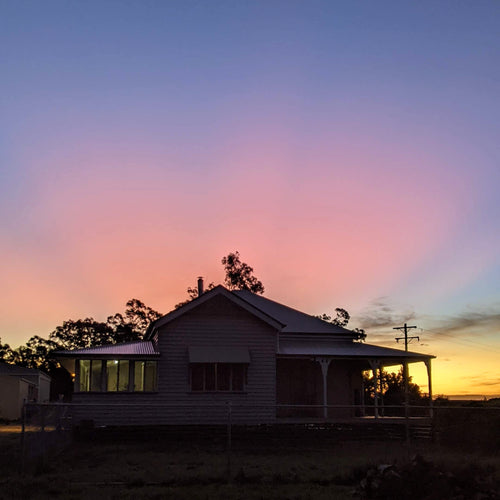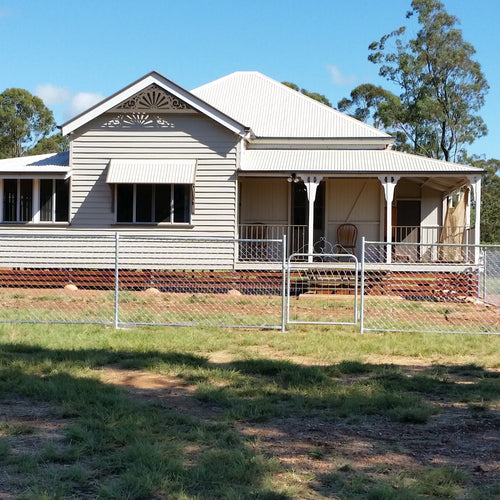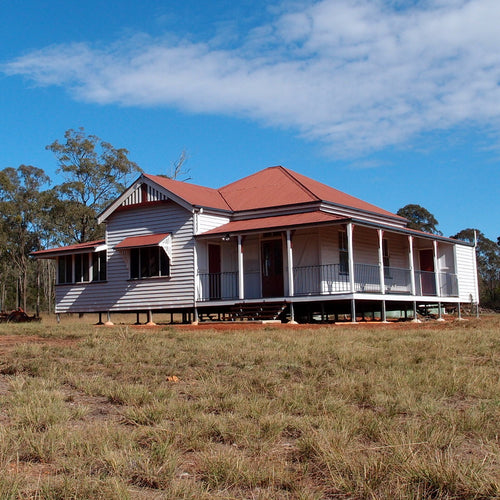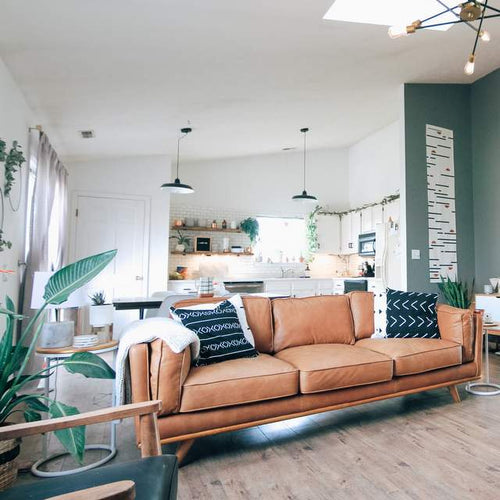Removing asbestos from our secondhand house
In Australia, asbestos was widely used in construction and other industries between 1946 and 1980. From the 1970s there was increasing concern about the dangers of asbestos, and its use was phased out. Mining ceased in 1983. The use of asbestos was phased out in 1989 and banned entirely in December 2003.
Two out of three homes in Australia built between World War II and the early 1980s still contain asbestos. - http://en.wikipedia.org/wiki/Asbestos
What's so bad about asbestos?
If you are not familiar with the dangers of asbestos, try watching the ABC TV mini-series Devil’s Dust (you can download it from itunes here, well worth it if you have a husband who doesn’t think he needs to wear a dust mask). It traces the life of Bernie Banton, who worked in an asbestos factory, and his fight to get compensation for himself and his colleagues after he got sick.
This graphically shows the impact of asbestos on so many people, from factory and mine workers to home renovators, and negligence of the people and companies involved and most of all, the importance of safe handling and disposal of the remaining asbestos in our homes and workplaces.
Exposure to asbestos fibres can cause both chronic lung disease (asbestosis) and a particularly nasty lung cancer called mesothelioma. It only takes one fibre in the lungs to cause this cancer, there is no safe level of exposure, and absolute care must be taken to avoid inhalation of asbestos fibres.
| Our "sunroom" with asbestos walls |
| the sunroom after removing asbestos wall sheeting and the vinyl flooring |
As you know, we went ahead and bought the old house anyway, and it has a small amount of asbestos in one of the built in verandas (known as the "sunroom"). If you buy a house in Australia that was built before the mid 80s, chances are, it will contain some amount of asbestos, with some houses clad entirely in “fibro”. Once you have identified the asbestos (you can send a small sample away for testing), then you have two choices, either leave it sealed and do not drill, sand, cut or damage it; or remove it and dispose of it safely and within the relevant legislation.
Asbestos is only a danger when it forms airborne dust, so if its in a wall panel that is painted and not damaged, then you could just leave it alone. Many work places in Australia have chosen to do exactly that. The problem we had was 1) it looks horrible and 2) we wanted to repaint the wall and add power points, which required cutting and sanding the asbestos, so we decided to remove the asbestos at this stage, before we have furniture in the house and when its relatively easy to control the dust hazard.
Can you remove asbestos from your house?
In our state (and most states in Australia that I checked, but you should check for yourself before you start work) we are allowed to remove 10 square metres of non-friable asbestos (that’s the boards, not the fluffy insulation, and what a disaster that is by the way). This is a useful guide about identifying asbestos in its many forms, how to handle it and how to dispose of it correctly.
Its hard to take asbestos seriously when it seems so innocuous, it doesn’t smell bad, or look dangerous, you don’t feel sick immediately after you handle it, you need to constantly remind yourself the damage if can do to your health many years in the future and protect yourself and others from that danger.
Tips for removing asbestos
- Send samples from your house to positively identify asbestos, if in doubt, assume that its dangerous.
- Find out what you’re allowed to do in your state, can you remove it yourself? How much can you remove? Do you need to pay a contractor?
- Find out what other requirements you need to comply with, how do you need to prepare the asbestos and how and where do you dispose of it? We had to wrap our asbestos in black plastic and arrange to take it to the landfill so that it could be buried immediately.
- If you are allowed to remove the asbestos, prepare your equipment and safety gear. You will need disposable overalls, P2 or better dust masks, PVA glue mixed with water in a spray bottle to stick down any lose fibres. Remove all furniture from the room and keep pets and children away from the area.
- You need to have all your tools ready because you don’t want to have to walk from your contaminated area to clean areas while wearing your overalls. Don’t use a domestic vacuum cleaner as you will just stir up the dust. If you’re not comfortable with the safety measures, pay a skilled contractor to do the work.
| PVA glue mixed with water is used to settle and stick any remaining asbestos fibres |
| We had to wrap the asbestos in black plastic prior to disposal at landfill |
The scary thing is that 2 million tonnes of asbestos is still being mined annually by Russia, China, Brasil and Kazakhstan (and until recently, Canada). Where is all this asbestos going? Its just a safety and environmental disaster waiting to happen. Asbestos is completely banned in Australia, New Zealand, the UK, Japan, South Korea, Singapore and Turkey, but not the US or Canada.
I was surprised to find such a short list of countries had banned asbestos. I think we are lucky that Australia has banned it, because at the time we had quite a large industry that mined and produced asbestos products. This is thanks to the work of Bernie Banton, see more about him here. More info here about the continuing global production of asbestos.
This is a link to the the Guide to Asbestos in the Home, written by the US Mesothelioma Centre.
Have you removed asbestos safely from your own house? Or decided to leave it? Do you know what you're allowed to do in your area?
A secondhand house for Cheslen Rise
A tour of our secondhand house (BEFORE)
The story of our secondhand house - Part 1
Choosing insulation for our house
Renovating a Queenslander house
Building the Queenslander house - book review
Stairs for our secondhand house
Removing asbestos from our secondhand house
Another update on our house progress
How to choose exterior paint colours
And one more update on our house progress
Keeping our house warm in winter























Leave a comment